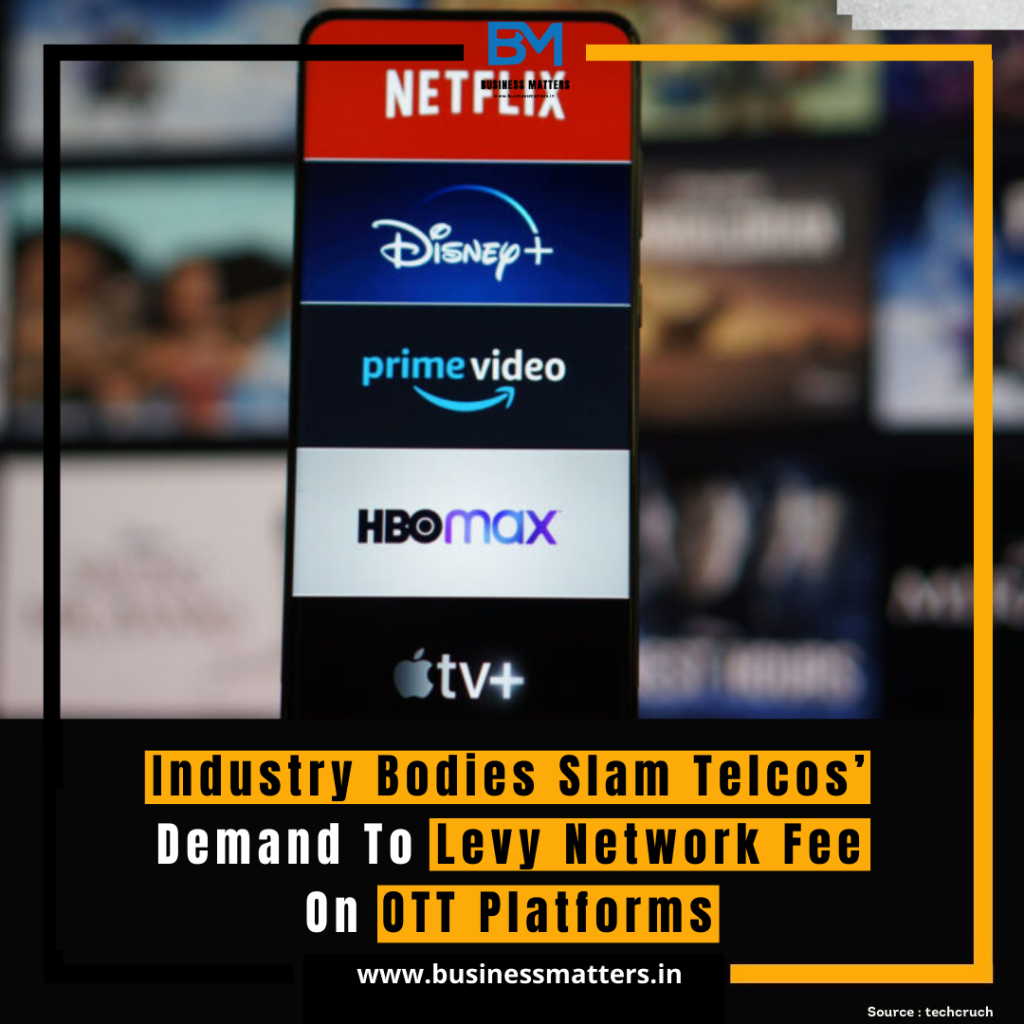
Industry Bodies Slam Telcos’ Demand To Levy Network Fee On OTT Platforms
Industry bodies such as the Internet and Mobile Association of India (IAMAI), the Cellular Operators’ Association of India (COAI), and the Broadband India Forum (BIF) have slammed the demand of telecom service providers (TSPs) to levy a network fee on over-the-top (OTT) platforms.
The TSPs, which include Reliance Jio, Airtel, and Vodafone Idea, have argued that they should be compensated for the high costs they incur in building and maintaining their networks, which are used by OTT platforms to deliver their content to users.
The OTT platforms, on the other hand, have argued that such a levy would be unfair and would violate the principle of net neutrality. Net neutrality is the principle that all internet traffic should be treated equally, regardless of its source or destination.
The industry bodies have also argued that such a levy would harm consumers, as it would lead to higher prices for internet services.
Arguments in favor of the network fee
The TSPs argue that they are facing a number of challenges, such as rising costs and increasing competition from OTT platforms. They say that they need to generate additional revenue to maintain their networks and invest in new technologies.
The TSPs also argue that the OTT platforms are using their networks without paying their fair share. They say that the OTT platforms are generating billions of dollars in revenue from their users, while the TSPs are left to bear the costs of building and maintaining the networks that they use.
Arguments against the network fee
The OTT platforms argue that they are already paying for the use of the TSPs’ networks through their users’ data plans. They say that a network fee would be double taxation and would lead to higher prices for consumers.
The OTT platforms also argue that such a levy would violate the principle of net neutrality. Net neutrality is the principle that all internet traffic should be treated equally, regardless of its source or destination. They say that a network fee would discriminate against OTT platforms and would harm consumers’ freedom of choice.
The industry bodies also argue that such a levy would harm consumers, as it would lead to higher prices for internet services. They say that consumers are already paying high prices for internet services in India and that a network fee would only make things worse.
Conclusion
The debate over the network fee is likely to continue for some time. The TSPs are under pressure to find new ways to generate revenue, while the OTT platforms and industry bodies are determined to protect consumers’ interests.
It is important to note that the Indian government has not yet taken a decision on the network fee. The government is currently studying the issue and is expected to issue a consultation paper soon.
It is also important to note that the network fee is not a new concept. A number of countries around the world have already implemented network fees or are considering doing so.
The outcome of the debate in India will have a significant impact on the future of the internet in the country. It is important for all stakeholders to participate in the debate and to ensure that the best interests of consumers are protected.tunesharemore_vert

